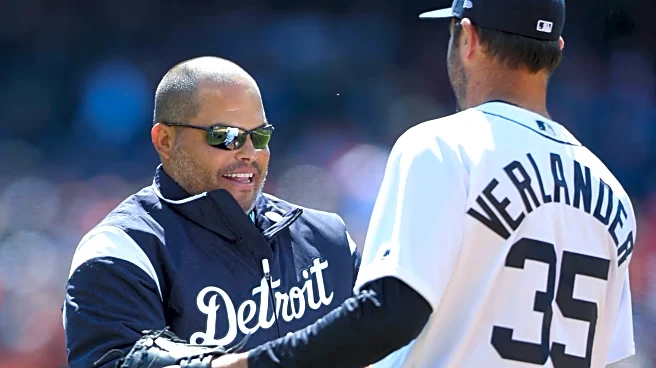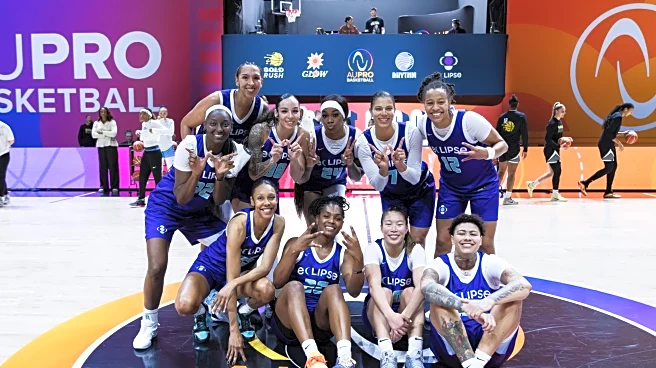What's Happening?
Josh Simmons, a player for the Kansas City Chiefs, has become the center of a privacy debate in the NFL following his unexpected absence from recent games. The situation began on October 6, when Simmons was
added to the injury report due to illness before a game against the Jacksonville Jaguars. Despite this, he played in the game. The following week, he was listed as 'Not Injury Related — Personal' ahead of the Lions game, and reports indicated he would not play. Speculation grew when it was reported that Simmons had flown to California, possibly without the team's knowledge. The Kansas City media has been persistent in seeking updates, leading to visible frustration from Coach Andy Reid, who stated that General Manager Brett Veach is handling the situation. The lack of information has led to widespread speculation among fans and media, highlighting the tension between public curiosity and player privacy.
Why It's Important?
The situation with Josh Simmons underscores a broader issue of privacy for professional athletes. While fans and media have a vested interest in the personal lives of players, this case highlights the ethical considerations of respecting privacy. The intense scrutiny and speculation can have negative impacts on players' mental health, as illustrated by Chiefs wide receiver Tyquan Thornton's experiences with media pressure. This incident reflects a cultural issue within NFL fandom, where there is a perceived entitlement to personal information about players. The debate raises questions about the boundaries of public interest and the rights of athletes to maintain privacy in personal matters.
What's Next?
As the situation unfolds, it remains uncertain when or if more details about Simmons' absence will be disclosed. The Chiefs organization, led by General Manager Brett Veach, is managing the situation internally. The media and fans may continue to press for information, but the focus may shift towards respecting Simmons' privacy and allowing him the space to address his personal matters. The NFL may need to consider policies or guidelines to better protect player privacy in similar situations, balancing transparency with respect for personal boundaries.
Beyond the Headlines
This incident could lead to a reevaluation of how the NFL and its teams handle player privacy. It may prompt discussions about the ethical responsibilities of media and fans in respecting the personal lives of athletes. The situation also highlights the potential mental health challenges faced by players under public scrutiny, emphasizing the need for support systems within sports organizations.










